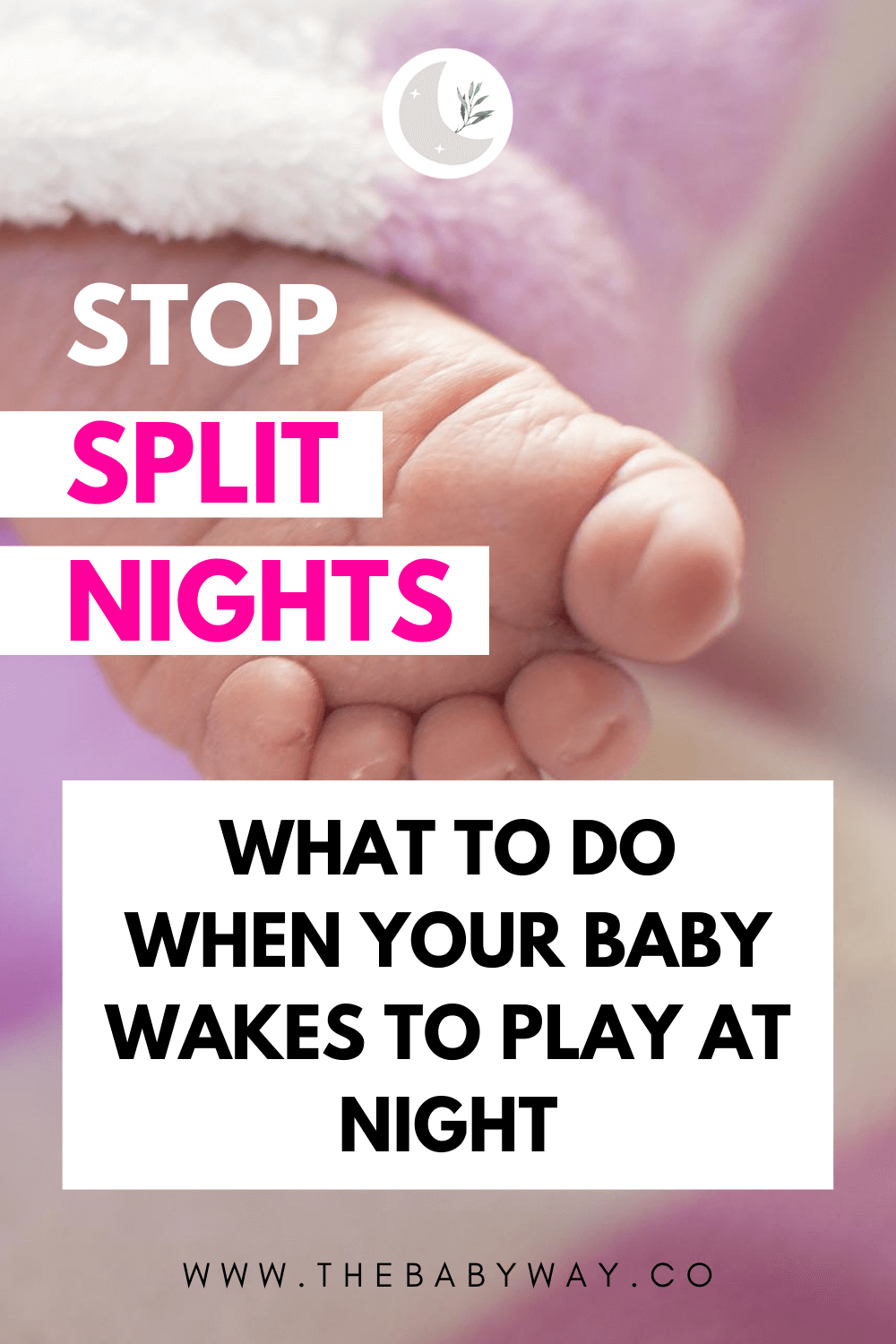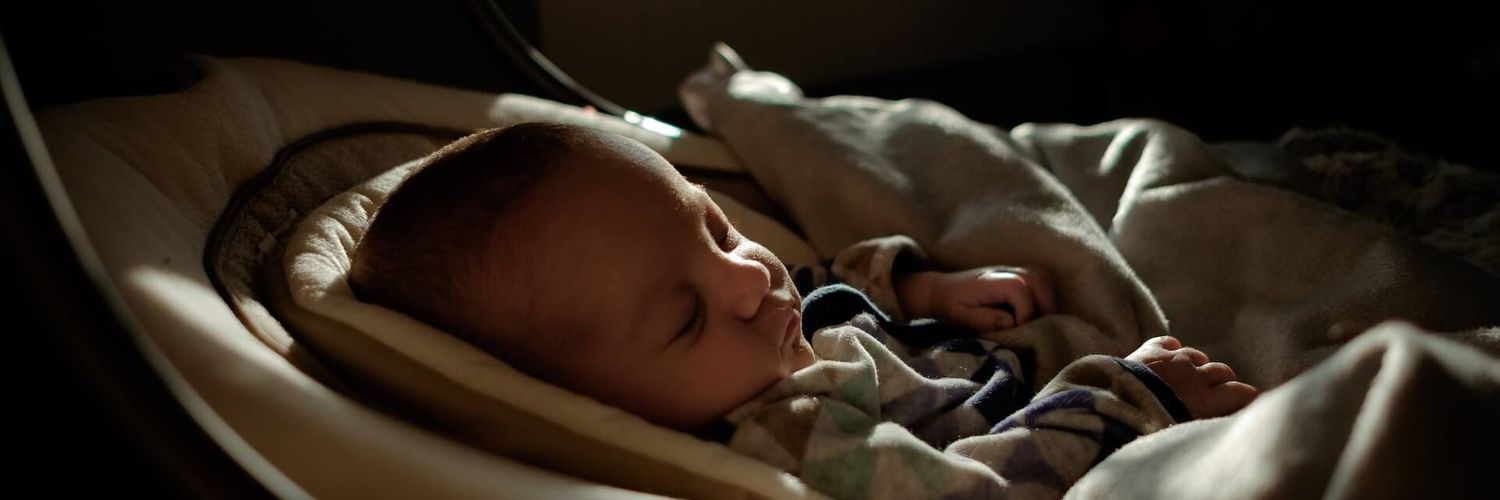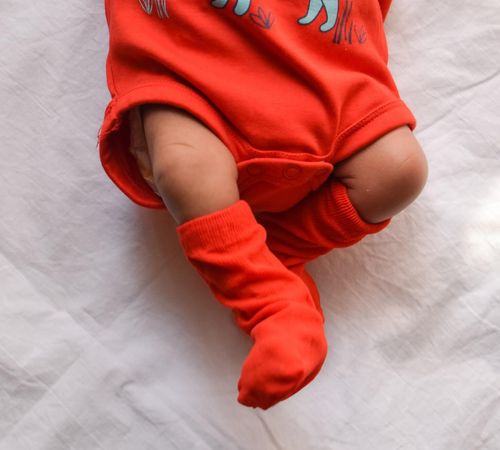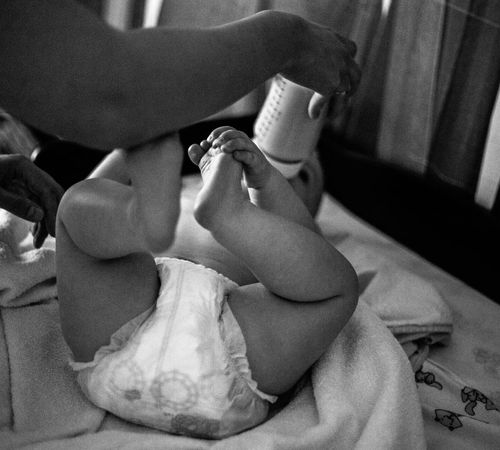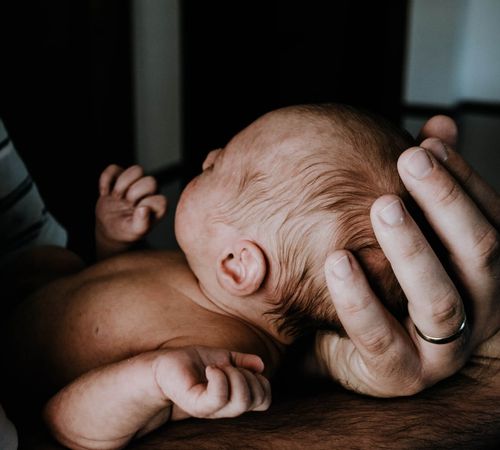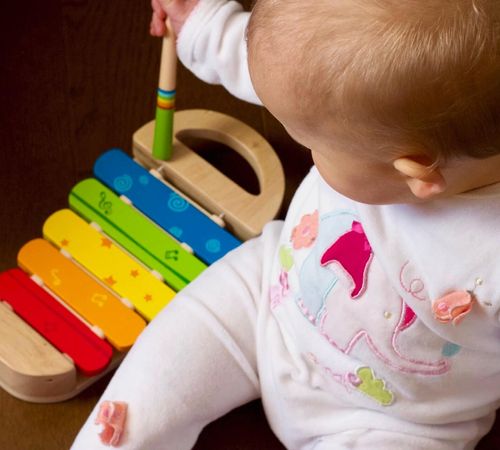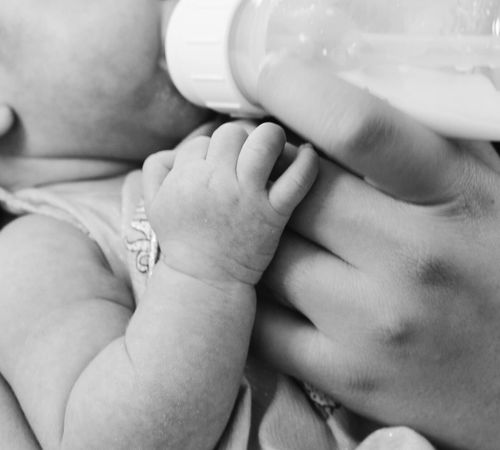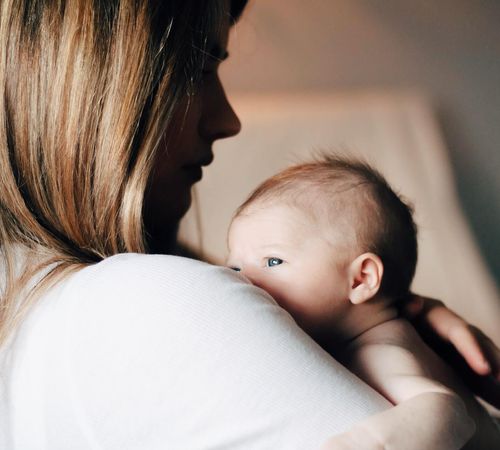Sometimes babies wake in the middle of the night and seem wide awake and ready to play. Here is what's going on and what to do about it.
I hear my baby waking up. It's 2 AM. I take her out of the crib, and she has her usual nighttime feeding. Once I am done with both sides, I put her back to bed. And then she starts to brabble.
Oh, no! What's happening? She usually falls asleep after her feed. What is going on?
I look at her, and she seems wide awake. She stands up. "Lay down and go back to sleep, sweety," I tell her as if it would help. She stares at me and gives me a look that says, "oh dear, you are so naive". I'm pretty sure if she could talk, she would say that. Then she spent 2 hours playing while I kept telling her to please just go to sleep!
I want to party all night said no new parent ever...
Why Babies Are Waking In The Middle Of The Night To Play
This phenomenon when babies suddenly wake ready to hang out is called "split night". Split nights happen when your baby wakes for one to several hours in the middle of the night and acts as if it was bright daylight.
If this was a one-time thing for you, then you don't have to worry. All babies are sometimes off sleep schedule or are going through a developmental milestone like a sleep regression and wake for a longer period at night.
But if you have a baby 3 months and older, and you see this behavior several times a week for a week or more, then you are probably dealing with a split nights issue.
Why Do Split Nights Happen?
Reason 1: Too much daytime sleep
A newborn baby has no sense of day and night. That's why they are sometimes up all night and sleep all day. Their circadian rhythm is not yet developed, and they cannot differentiate between day and night. While infant sleep is very unpredictable at this age, we don't talk about split nights but day-night confusion.
After 2-3 months, babies develop more predictable sleep patterns. Their daytime sleep slowly decreases as nighttime sleep gets more consolidated. Over the next 2-3 years, your little one will sleep less during the day with increasing age until they drop all naps altogether.
Now, when your baby gets too much sleep during the day, they will sleep less at night. Depending on age, they only need a certain amount of sleep in a 24-hour cycle. And if your baby naps too much during the day, they can wake up in the middle of the night ready to play.
Reason 2: Too early bedtime
Figuring out the right bedtime can be a science itself. During your little one's last awake time, sleep pressure will slowly build up. Sleep pressure is the body's drive to sleep and will help your baby fall asleep faster and stay asleep longer. Once your baby is asleep, sleep pressure will slowly wear off.
If you put your baby to bed too early in the evening, their body has not built up enough sleep pressure to stay asleep. Instead, their sleep pressure will dissolve completely at some point in the middle of the night, and they will wake ready to rock and roll. Low sleep pressure will also make them more prone to any small sleep disruption waking them up fully.
Once they are up, it can take a while until enough sleep pressure builds up again, so they fall back asleep and continue sleeping until the morning.
How Common Are Split Nights?
Split nights usually can start to happen at around 5 months and can continue until toddlerhood. Newborns and young infants typically don't show this kind of behavior. A younger baby might be awake for 1-3 hours, while toddlers usually are up 30-60 minutes. The chance you will experience a split night decreases the older your baby gets because they naturally start to sleep less during the day. Nap fights, hello!
Since your baby does not wake due to a need such as hunger, they are pretty happy.
How To Fix Split Nights
First, Work On Naps!
Fixing this issue can take a few days. Your baby has already gotten used to a specific sleep pattern, and their circadian rhythm might now be programmed to wake in the middle of the night and treat it as day. So what you now need to do is shift that daytime sleep to nighttime sleep.
In practice, this means that you need to keep a closer look at your baby's nap schedule. The last wake window should be the longest.
If your baby only naps once a day, then you need to shorten that nap. If your baby still sleeps in the morning and/or afternoon, then you need to cap those naps first. The overall goal is to reduce the amount of daytime sleep and increase the length of the last wake time until bedtime.
Scenario 1: You have an 8-month-old baby that naps twice a day, in the morning and after lunch. The next nap your baby is going to drop (at around 13 months) is the morning nap. So, I would recommend shortening the morning nap by 5-10 minutes every day. Your baby does not need to sleep longer than 30-40 minutes. This will also bring forward the time of the lunch nap, increasing the last wake window until bedtime.
You may also need to wake your baby in the morning. Sometimes when babies stay up in the middle of the night, they will sleep in the morning to compensate for lost sleep. Getting sleep sorted out, in this case, can be more challenging as your little one will probably tired in the morning.
Scenario 2: Your baby's usual wake-up time is 8 AM. You will now wake them 10 minutes earlier every 2 days. They might get tired during the first wake window as sleep pressure is still high in the morning. Try to bring forward the time of the first nap. All the following naps will be earlier too, but try to keep your usual bedtime.
I know it is very tempting to have your baby sleep in the morning, but in the end, it might mess up their following naps, and you will end up in a cycle of either late bedtime or split nights might continue.
What if my baby gets cranky because I wake them from their nap?
Never wake a sleeping baby, they say in fear of having a sleepy, cranky baby. Well, in this case, this might actually be true. There is a good chance your baby will be more tired during the day than usual. They nap less and must adjust to less sleep. This can take a few days.
I recommend slowly cutting naps shorter by 10 minutes every two days. In this case, you don't risk your baby getting overtired or having a too early bedtime.
What if my baby gets tired very early in the evening because of less sleep during the day?
Adjusting to less sleep is a process and sometimes a not-so-pleasant one. It is possible that your baby will get tired earlier than usual but trying to stall bedtime, in this case, is ok.
You can try to expose them to less stimulation during the day and keep it quieter, so they don't get too exhausted overall.
Split nights can be really frustrating. And this frustration can build up over days. Sometimes you will go to bed already, fearing your baby will wake up in a few hours. But try to keep consistent and don't fall into the temptation of letting your baby nap too much during the day. I know you are tired, but once you get those naps back in order, you will have solved this sleep problem in a few days and will be back to better sleep.
